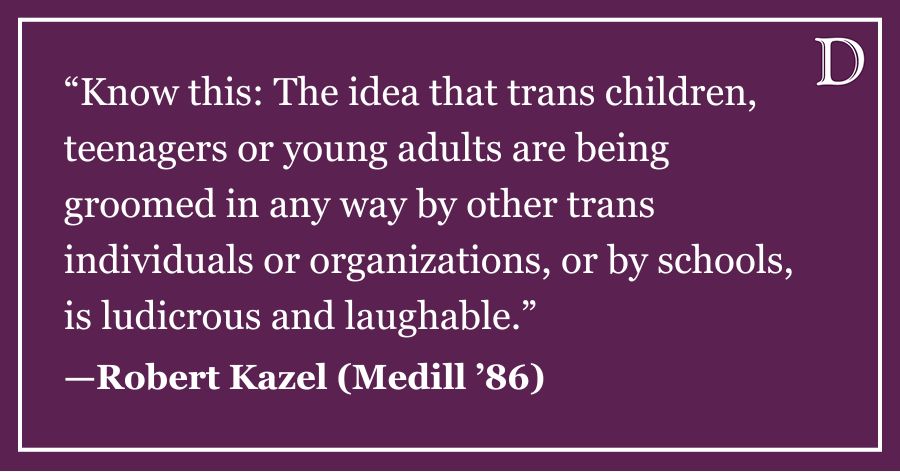The real estate bubble. The dot-com bubble. The higher education bubble? Michael’s magic 8-ball says “All signs point to yes.” As tuition, fees, books and room and board exceed $50,000 a year at many schools, middle and working-class families increasingly struggle to afford college. You know something’s awry when you consider that a family of four with two college-aged kids and a combined income of $100,000 a year – the 83rd percentile – might need to go into significant debt to send both kids to a school of NU’s caliber.
This simply wasn’t the case back in our parents’ day. The American Dream – or what’s left of it, at least – depends on the possibility of upward mobility, and upward mobility, we’ve been told, depends on proper education. But average college tuition and fees have increased at four times the inflation rate, twice the healthcare rate and 439 percent overall since 1982. Moreover, as nonprofits, most schools hardly have incentives to cut costs. In fact, many parents and students actually conflate the price of an education with its quality. In 2000, Ursinus College in Collegeville, Pa. boosted tuition and fees by 17.6 percent and saw its freshman class grow 56 percent within eight years.
But in the ominous words of Charles Miller, former chairman of the U.S. Department of Education’s Commission on the Future of Higher Education: “If college costs continue to escalate at this rate, you may reach a point where the investment simply isn’t worth it.” However, college education remains an absolute necessity for anyone seeking white-collar, upper middle-class employment, as most students here do. A 2002 Census Bureau study found that the earnings of an adult with a bachelor’s degree are typically double those of an adult with just a high school diploma over the course of a lifetime.
A life decision of this magnitude needs maximal transparency and information. Economics Prof. Richard Vedder of Ohio University, author of “Going Broke by Degree: Why College Costs Too Much,” has proposed that every college or university be required to cooperate with the IRS to compile and publish average and median employment earnings for graduates 1, 5 and 10 years after graduation.
In this regard, Northwestern has done quite well. For the class of 2010, University Career Services compiled exhaustive employment and salary figures from each of the six schools, sorted by industry, major and gender. Similarly, Vedder suggests that companies employing 1,000 or more workers or receiving more than $5 million in federal contracts be required to evaluate employee job performance and sort by colleges attended. Since the prospect of a well-paying job down the line is a big part of why we’re all here, both proposals could expose which schools are overcharging students.
Federal law should require schools to collect this kind of data over extended periods of time so that prospective students can make better-informed choices. At the bottom of the educational scale, this might steer people away from for-profit scammers. For those at state institutions, where humanities majors in particular run the risk of malemployment (the PBS NewsHour recently featured B.A. holders walking dogs, cleaning trash cans and moving furniture for example) it could encourage more students to pursue more practical degrees. And at the top, it could help someone distinguish between, say, UChicago and NU beyond simple factors such as reputation and distance from home. Of course, these ideas are hardly foolproof. Law schools, for example, have cooked the books on employment figures for years, although recent pressure from the American Bar Association has curbed the practice. But without more openness and accountability, the prices will continue to skyrocket, and too many students will graduate under crushing debt burdens. The life of the mind is hard to pursue when you’re paying back $500 in loans every month.
Michael Kurtz is a Weinberg sophomore. He can be reached at [email protected]. Illustration by Jenna Fugate.













